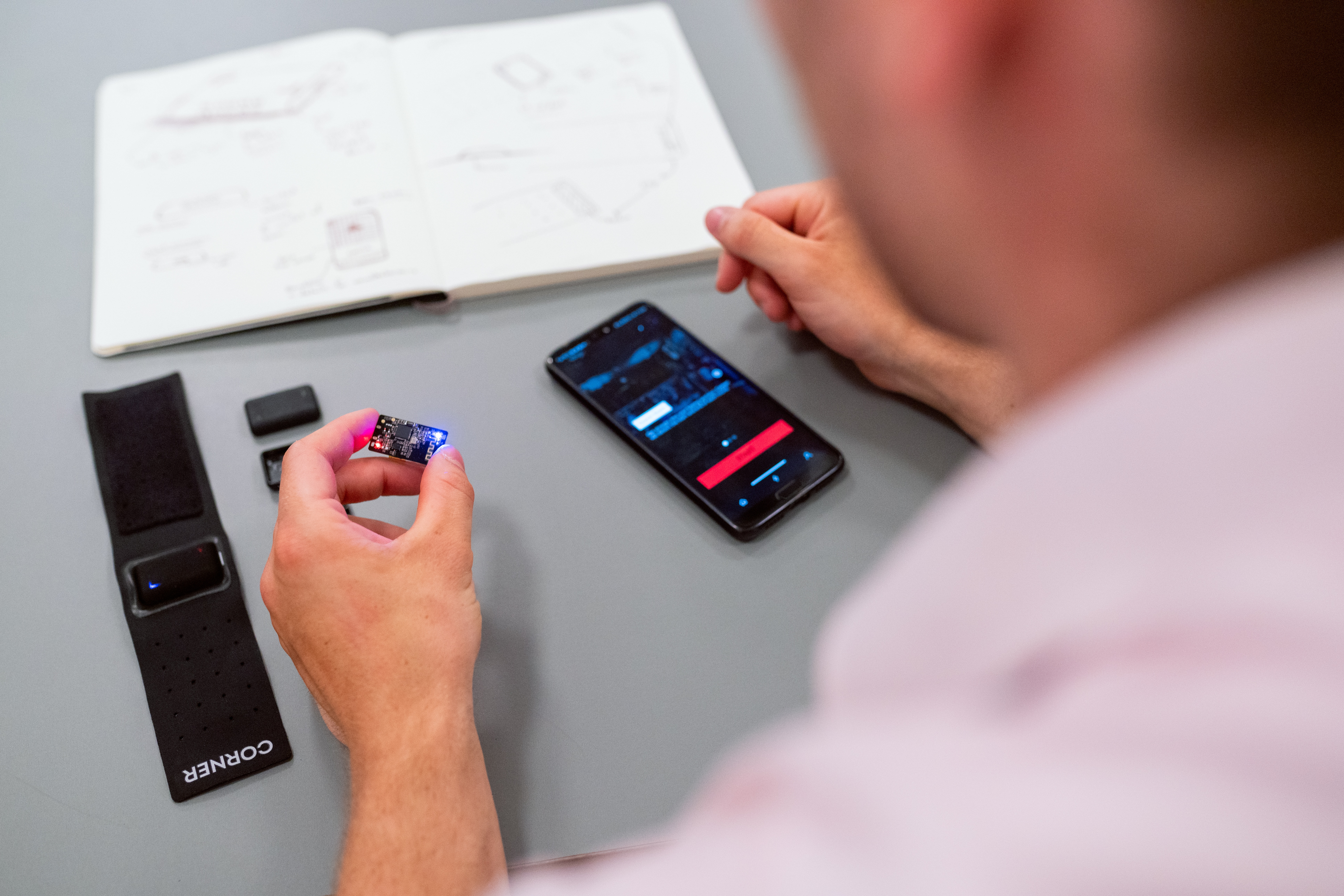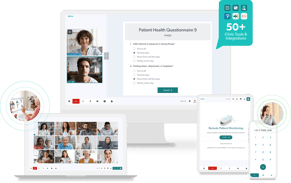What Does Patient Engagement Software Do?
Patient engagement software refers to a range of digital tools and technologies designed to actively involve patients in their healthcare journey and encourage their participation in decision-making, self-management, and overall wellness. A leading platform in this space, Coviu discusses how similar software can improve patient outcomes, enhance patient-provider communication, and increase patient satisfaction.
Traditionally, healthcare has been largely provider-driven, with patients having limited involvement in their own care decisions and management. However, with the rise of consumerism, increased access to health information, and the recognition of patient empowerment, there has been a growing emphasis on engaging patients as active participants in their healthcare.
To date, the growth of patient engagement software has been shaped by several factors such as the widespread adoption of electronic health records (EHR) and telehealth, regulatory initiatives such as pandemic measures enforcing telehealth options and the 'Meaningful Use Program' part of the 2009 Health Information Technology for Economic and Clinical Health (HITECH) Act, as well as expanded reimbursements supporting the use of virtual care and associated applications.

What is patient engagement software?
Patient engagement software leverages technology to facilitate engagement between patients and the healthcare system. It encompasses a variety of tools and applications, including patient portals, mobile apps, wearables, telemedicine platforms, remote monitoring devices, health management platforms, and telehealth platforms such as Coviu. These technologies enable patients to access their medical records, communicate with healthcare providers, schedule appointments, receive educational resources, track their health metrics, and actively participate in shared decision-making.
There are several types of patient engagement software available, each with its own specific focus and functionality. Here are some common types:
1. Telemedicine Platforms
Telemedicine software enables virtual consultations and remote healthcare services. These platforms allow patients to have video or audio-based appointments with healthcare providers, seek medical advice, receive diagnoses, and discuss treatment plans from the comfort of their homes. Coviu is a global leader in telemedicine with advanced functionality for healthcare.
2. Remote Patient Monitoring (RPM) Systems
RPM systems utilize technology to remotely monitor patients' health conditions and transmit data to healthcare providers. They often integrate with wearable devices, sensors, or other monitoring tools to track vital signs, chronic disease parameters, or medication adherence. Healthcare professionals can review the collected data and provide timely interventions or adjustments to treatment plans. Coviu has a two-prong RPM solution discussed further in this blog.
3. Patient Education and Engagement Platforms
These software solutions focus on delivering educational content and engagement tools to patients. They may provide personalized health information, interactive educational resources, decision aids, and tools to track and manage health goals. Many of Coviu's customers utilize its broad suite of features and group functionality to deliver educational sessions and materials, making it much more than just a telemedicine platform.
4. Social Support and Community Platforms
These platforms create online communities or social networks where patients can connect with others who have similar health conditions or experiences. These communities offer a space for peer support, information sharing, and emotional well-being. Coviu supports the delivery of peer support with its group rooms and integrated tools for behavioral health.
How can patient engagement platforms transform healthcare?
The benefits of patient engagement software are numerous. It empowers patients by giving them access to their health information, promoting self-management and proactive decision-making. Patients can become more informed about their conditions, treatment options, and preventive measures. It also enables patients to communicate securely with their healthcare providers, reducing barriers to accessing care and improving care coordination.
1. Enhancing communication
Patient engagement software improves patient communication through features such as secure messaging, appointment scheduling and reminders, access to medical records and test results, health information sharing, educational resources, telemedicine and virtual visits, and patient feedback mechanisms. These tools facilitate direct communication between patients and healthcare providers, enable informed conversations, and promote shared decision-making. Patient engagement software enhances the patient-centered approach, encourages active patient involvement, and fosters collaboration between patients and healthcare providers, resulting in effective information exchange and improved patient engagement in their healthcare journey.
2. Retaining patients
Platforms like Coviu are proven to increase patient retention with the improved convenience of remote healthcare delivery. The ability to set appointment reminders and schedule effectively via an online platform means patients are more likely to attend appointments, reducing no-shows. In addition, Patient engagement software may offer personalized care plans, medication reminders, and tracking tools for managing health conditions. This greater ability to personalize care and empower patients to participate in their treatments, leads to heightened patient satisfaction rates and better long-term retention.
3. Improving overall care
Improving healthcare outcomes overall, patient engagement software supports preventive care and chronic disease management by providing patients with educational resources, reminders, and tracking tools. By actively engaging patients in managing their health, practitioners can help prevent complications and reduce the need for costly interventions or hospitalizations. The software also supports better continuity of care leading to greater long-term healthcare management.

Why should you adopt digital patient engagement platforms?
Practitioners should seriously consider adopting digital patient engagement platforms like Coviu to reduce costs and reap the benefits of virtual care. Three major advantages you can experience by adopting these platforms include:
1. Reduced administrative burden
Patient engagement software automates various administrative tasks such as appointment scheduling and reminders. This automation reduces the time and effort spent on manual administrative work, allowing practitioners to focus more on patient care.
2. Improved efficiency
By streamlining communication and information exchange between patients and practitioners, patient engagement software improves workflow efficiency. It minimizes the need for phone calls, paper-based documentation, and repetitive tasks, enabling practitioners to allocate their time more effectively. Patient engagement software also enables seamless sharing of patient information between healthcare providers, improving care coordination. This reduces the need for duplicate tests, unnecessary procedures, and redundant consultations, leading to cost savings for practitioners and healthcare systems.
3. Decreased no-shows and cancellations
Patient engagement software often includes features for appointment reminders and convenient scheduling options. These tools help reduce missed appointments and last-minute cancellations, maximizing practitioners' productivity and minimizing lost revenue.
Coviu: all-in-one virtual care engagement platform
)%20(7).png?width=680&height=383&name=Australian%20Health%20%26%20Aged%20Care%20Resource%20Guide%20May%202023%20(Presentation%20(169))%20(7).png)
Coviu is a global leader in virtual care, standing out from its competitors as it unifies a number of patient engagement features under its all-in-one platform. Rather than having to invest in a range of software, Coviu simplifies things for practitioners with over 50 patient-centric tools and features through its Apps Marketplace delivered via telehealth for individuals or groups.
Notable apps include in-built assessment tools such as Pearson assessments and mental health questionnaires delivered in-calls, as well as customizable forms, remote patient monitoring solutions, features to support clinical workflows such as appointment scheduling and an advanced online waiting room, and more.
Coviu is also highly interoperable, integrating with almost any EHR software or patient management software (PMS). In addition, it meets strict privacy and security requirements for healthcare providers and is exceptionally easy to use with no downloads required - an entirely web-based system!
Built specifically for healthcare, Coviu makes the shift to patient engagement software a breeze with an intuitive, frictionless virtual care experience!
Conclusion
Patient engagement software has emerged as a valuable tool in the healthcare industry, leveraging technology to actively involve patients in their care and decision-making processes. It aims to improve patient outcomes, enhance patient-provider communication, and foster a patient-centered approach to healthcare delivery.
Coviu contributes to patient-centered care by increasing accessibility, fostering personalized interactions, supporting shared decision-making, ensuring continuity of care, enhancing patient education, and enabling remote monitoring.
Try us out

Try Coviu for free, with a 2-week trial - no credit card required.
To learn more, book a call with one of our friendly team members here.




